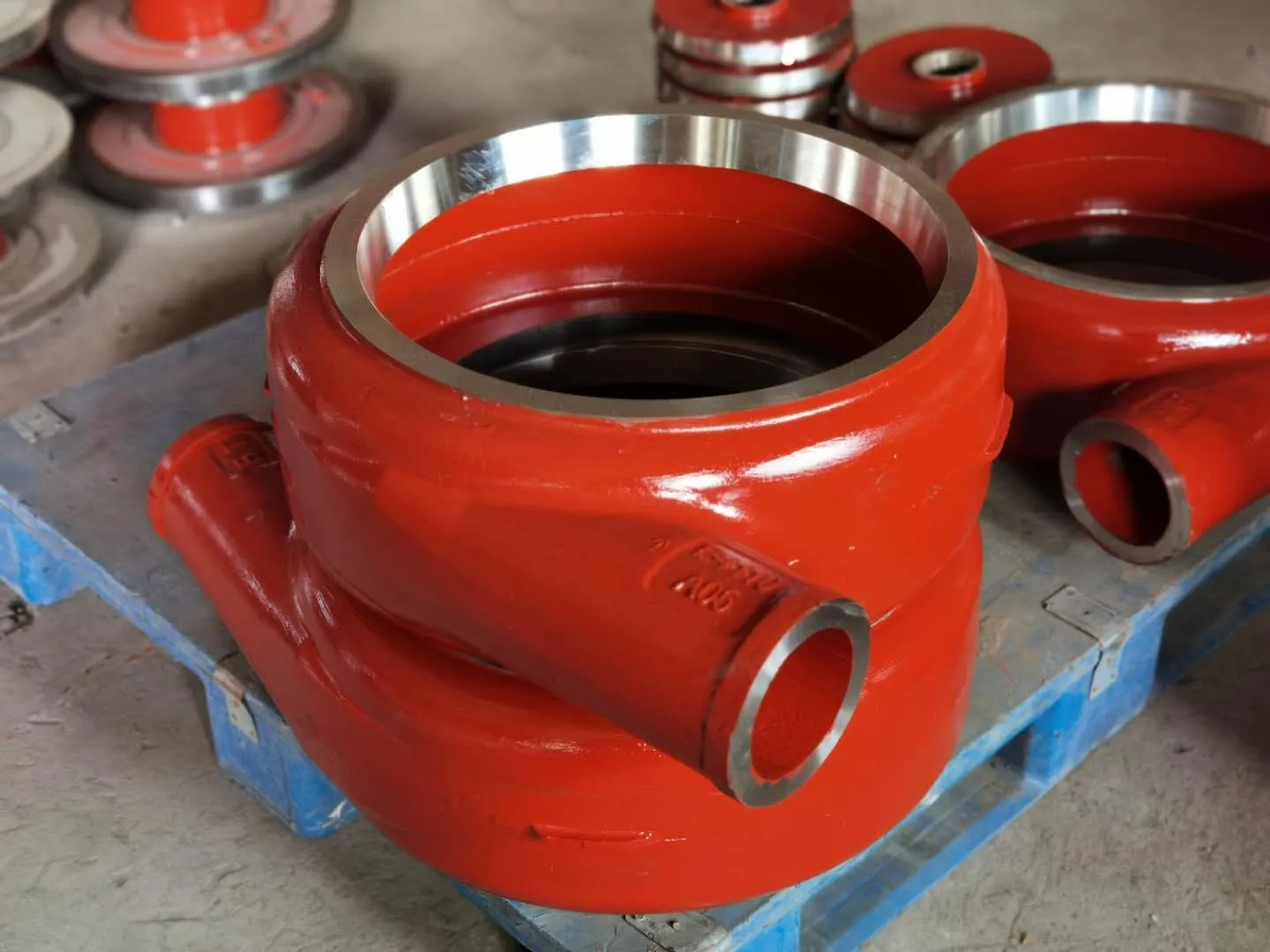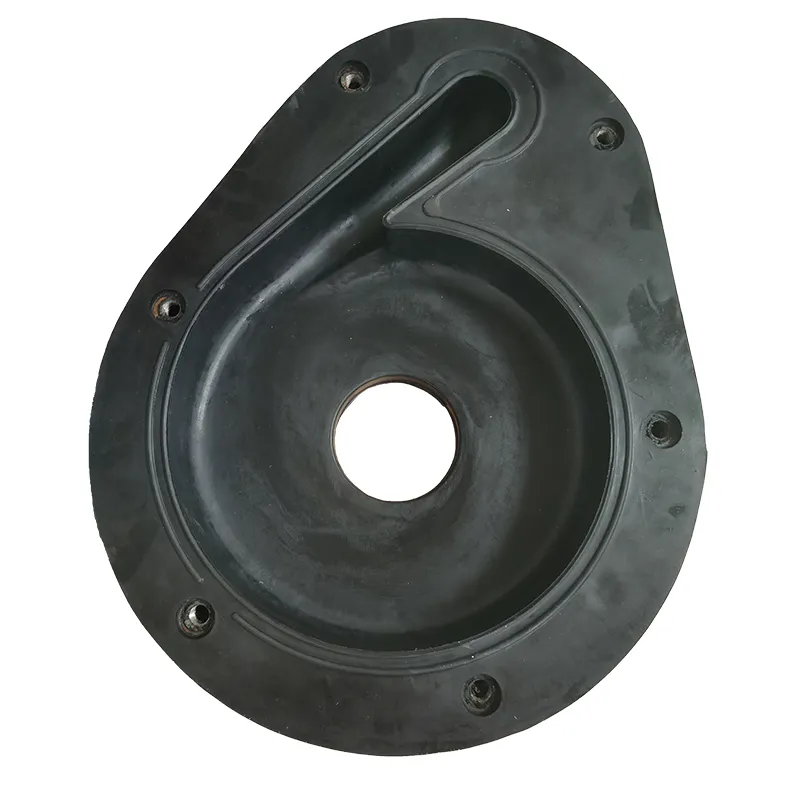-
 support@minemaxx.com
support@minemaxx.com
-
 0086-311-87833311
0086-311-87833311
 NO.8 JIHENG STREET,QIAOXI DISTRICT,SHIJIAZHUANG,HEBEI,CHINA
NO.8 JIHENG STREET,QIAOXI DISTRICT,SHIJIAZHUANG,HEBEI,CHINA
2 月 . 11, 2025 07:57
Back to list
centrifugal pump types of impeller
Centrifugal pumps play a pivotal role in countless industrial applications, and choosing the right impeller type is crucial to achieving optimal performance. This detailed guide explores the various types of impellers used in centrifugal pumps, enriching your understanding with insights gleaned from real-world applications and the expertise of seasoned engineers.
Closed impellers, fitted with shrouds on both sides of the vanes, are among the most efficient and common types used in centrifugal pumps, especially in clean fluid applications. Their design minimizes fluid re-circulation, boosting efficiency in transferring energy from the motor to the liquid. They are typically employed in water supply and boiler feed applications where precision and energy conservation are imperative. Expertise in operating closed impellers emphasizes ensuring a precise alignment of components to prevent friction-caused energy loss and heat generation, which could degrade the internal components over time. When choosing the right impeller type, it is paramount to consider the nature of the fluid being pumped. Factors such as viscosity, temperature, and the presence of particulates can significantly affect impeller performance and longevity. For example, closed impellers are unsuitable in situations where particles are likely to clog the pump, whereas open or semi-open designs may falter in highly precise industrial processes due to lower efficiency levels. Industry professionals advocate assessing these parameters through computational fluid dynamics (CFD) simulations to predict performance and fine-tune impeller design before installation. Moreover, material selection is equally crucial in the choice of impeller. Materials such as stainless steel, bronze, or plastic composites can be used, each providing varying resilience to abrasion, corrosion, and thermal stress. Specialist advice underscores the importance of aligning material choice with the chemical and physical properties of the fluid to enhance longevity and minimize maintenance costs. In conclusion, selecting the optimal impeller type for a centrifugal pump demands a balanced consideration of the liquid's characteristics, desired efficiency levels, and environmental conditions. Drawing on expertise from industry veterans and empirical data, companies can refine their selection to improve performance, reduce costs, and ensure reliability. By comprehensively understanding the nuances of each impeller type, stakeholders can make informed decisions that align with operational goals and constraints, fostering not just efficiency, but sustainability and innovation in fluid management systems.


Closed impellers, fitted with shrouds on both sides of the vanes, are among the most efficient and common types used in centrifugal pumps, especially in clean fluid applications. Their design minimizes fluid re-circulation, boosting efficiency in transferring energy from the motor to the liquid. They are typically employed in water supply and boiler feed applications where precision and energy conservation are imperative. Expertise in operating closed impellers emphasizes ensuring a precise alignment of components to prevent friction-caused energy loss and heat generation, which could degrade the internal components over time. When choosing the right impeller type, it is paramount to consider the nature of the fluid being pumped. Factors such as viscosity, temperature, and the presence of particulates can significantly affect impeller performance and longevity. For example, closed impellers are unsuitable in situations where particles are likely to clog the pump, whereas open or semi-open designs may falter in highly precise industrial processes due to lower efficiency levels. Industry professionals advocate assessing these parameters through computational fluid dynamics (CFD) simulations to predict performance and fine-tune impeller design before installation. Moreover, material selection is equally crucial in the choice of impeller. Materials such as stainless steel, bronze, or plastic composites can be used, each providing varying resilience to abrasion, corrosion, and thermal stress. Specialist advice underscores the importance of aligning material choice with the chemical and physical properties of the fluid to enhance longevity and minimize maintenance costs. In conclusion, selecting the optimal impeller type for a centrifugal pump demands a balanced consideration of the liquid's characteristics, desired efficiency levels, and environmental conditions. Drawing on expertise from industry veterans and empirical data, companies can refine their selection to improve performance, reduce costs, and ensure reliability. By comprehensively understanding the nuances of each impeller type, stakeholders can make informed decisions that align with operational goals and constraints, fostering not just efficiency, but sustainability and innovation in fluid management systems.
Previous:
Latest news
-
Wet Parts for Optimal PerformanceNewsOct.10,2024
-
Vertical Pump Centrifugal SolutionsNewsOct.10,2024
-
Top Slurry Pump ManufacturersNewsOct.10,2024
-
The Ultimate Guide to Centrifugal Pump for SlurryNewsOct.10,2024
-
Pump Bearing Types for Optimal PerformanceNewsOct.10,2024
-
A Guide to Top Slurry Pump SuppliersNewsOct.10,2024
-
Slurry Pump Parts for Optimal PerformanceNewsSep.25,2024

